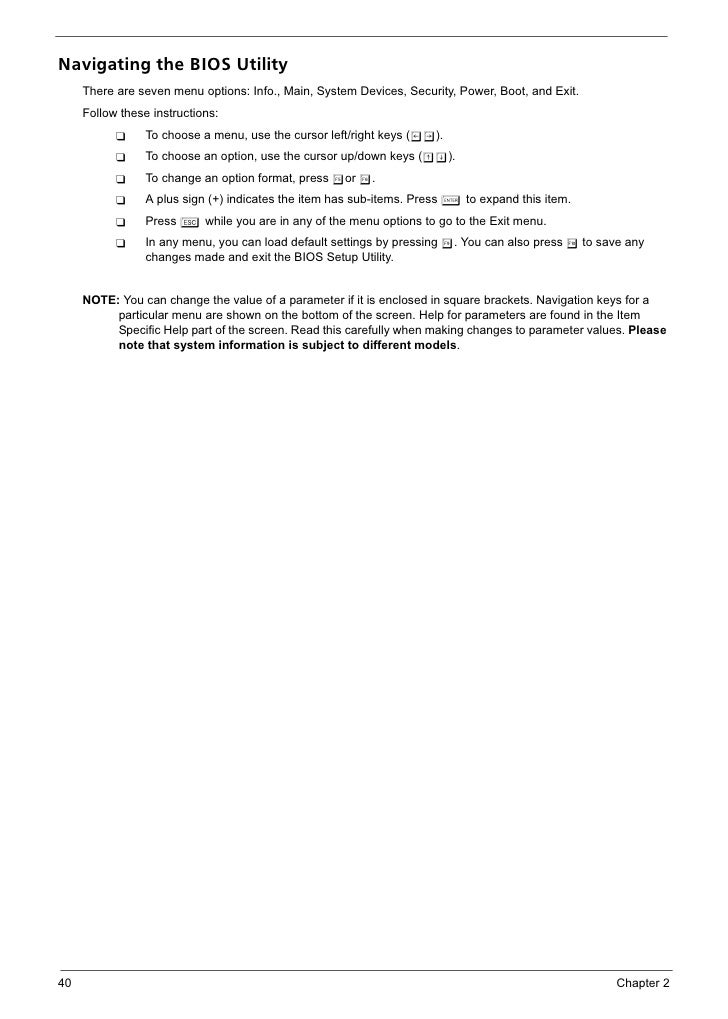The Main screen allows the user to set the system time and date as well as enable and disable boot option and recovery.
BIOS PASSWORD AND LOCKED HARD DISK RECOVERY: Our laptop security chips are here. Our hard disk unlocking service is here. If your computer won’t boot without a password or you need a password to enter the computer set-up or change the settings, then you have a BIOS password set. BIOS is an acronym for basic input/output system. Step 2: Plug the newly burned disk into your locked Toshiba computer. Set BIOS to make this computer to boot from CD/DVD or USB. (Check how to reset BIOS password first if your BIOS is protected with a password) Step 3: After it fully loads, Windows password key appears. Follow the steps to reset Toshiba laptop password. We have three different kind of Phoenix BIOS Flashers available on Wim's BIOS. Phlash is a DOS based flasher. Winphlash lets you update your BIOS from within Windows (32 bit and 64 bit versions). If you have an UEFI based BIOS from Phoenix you'll need to use Phoenix UEFI Flasher. Can I get more options with a Phoenix TrustedCore Bios? I have a Toshiba A205 S5814 laptop, and it looks like the BIOS is very limited. I need to change hard drives modes in what not. Phoenix BIOS / Motherboard Drivers Download for Windows 10, 8, 7, XP, Vista. If you cannot find the right driver for your device, you can request the driver. Why not go to the Motherboard Manufacture's site and download their BIOS for your specific motherboard along with the updated drivers? That subscription only lasts for a year.
Information
Phoenix TrustedCore(tm) Setup Utility in Advanced Security Boot Exit
System Time: | 00:10:10] |
System Date: | [04/28/2007] |
System Memory: | 640 KB |
Extended Memory: | 2046 MB |
Video Memory: | 256 MB |
Quiet Boot: | [Enabled] |
Network Boot: | [Enabled] |
F12 Boot Menu: | [Disabled] |
D2D Recovery: | [Enabled] |
Item Specific Help
<Tab>, <Shift-Tab>, or <Enter> selects field.
EHelp ^«Select Item
Exit ^J.Select Menu
Enter
Change Values Select ►Sub-Me
nul Um

Setup Defaults Save and Exit
NOTE: The screen above is for your reference only. Actual values may differ.
The table below describes the parameters in this screen. Settings in boldface are the default and suggested parameter settings.
Parameter | Description | Format/Option |
System Time | Sets the system time. The hours are displayed with 24-hour format. | Format: HH:MM:SS (hour:minute:second) System Time |
System Date | Sets the system date. | Format MM/DD/YYYY (month/day/ year) System Date |
System Memory | This field reports the memory size of the system. Memory size is fixed to 640MB | |
Extended Memory | This field reports the memory size of the extended memory in the system. Extended Memory size=Total memory size-1MB | |
VGA Memory | Shows the VGA memory size. VGA Memory size=128/256 MB | |
Quiet Boot | Determines if Customer Logo will be displayed or not; shows Summary Screen is disabled or enabled. Enabled: Customer Logo is displayed, and Summary Screen is disabled. Disabled: Customer Logo is not displayed, and Summary Screen is enabled. | Option: Enabled or Disabled |
Power on Display | Set the display output device on boot up. | Option: Auto or Both |
Network Boot | Enables, disables the system boot from LAN (remote server). | Option: Enabled or Disabled |
F12 Boot Menu | Enables, disables Boot Menu during POST. | Option: Disabled or Enabled |
D2D Recovery | Enables, disables D2D Recovery function. The function allows the user to create a hidden partition on hard disc drive to store operation system and restore the system to factory defaults. | Option: Enabled or Disabled |
NOTE: The sub-items under each device will not be shown if the device control is set to disable or auto. This is because the user is not allowed to control the settings in these cases.
Advanced
Phoenix TrustedCore(tm) Setup Utility
Phoenix TrustedCore(tm) Setup Utility
The table below describes the parameters in this screen. Settings in boldface are the default and suggested parameter settings.
Phoenix Trustedcore Bios Password
Parameter | Description | Format/Option |
Infrared Port | Enable or Disable the infrared port | Option: Enabled or Disabled |
Configure Alert Standard Format (ASF) parameters. A standard for how alerting and remote-control capabilities on network controllers work Options: Minimum WatchDog Timeout: [ ] BIOS Boot Timeout: [ ] OS Boot Timeout: [ ] Power-on wait time: [ ] |
Phoenix Trustedcore Setup Utility Password
Continue reading here: Security
Was this article helpful?
